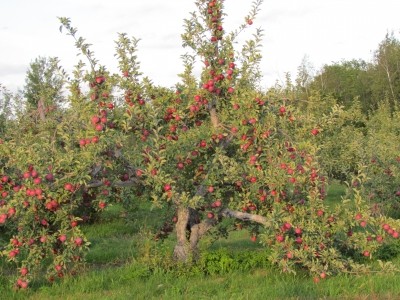Canadian firm seeks US approval for non-browning GM apple
The company, Okanagan Specialty Fruits, based in Summerland, British Columbia, is also in discussions with Health Canada and the Canadian Food Inspection Agency about whether it can bring its apple to market, but it is widely expected that the Canadian regulatory authorities will follow the United States’ lead.
Okanagan Specialty Fruits (OSK) licensed the technology from Australian researchers who had pioneered it with potatoes. In essence, the process involves silencing the gene responsible for browning in fruit. It could be applied to any apple variety, the company said, with the intention that apples would be marketed under OSK’s Arctic brand name.
Company president Neal Carter was quoted by the Canadian Press as saying: "The apples look exactly like what you'd expect – a Golden or Granny or Fuji – and it tastes like a normal apple. Their composition is, if anything, better or more nutritious, because as you'd expect, browning is a bad thing in an apple."
Okanagan Specialty Fruits has said the non-browning apple has benefits for producers in terms of cutting wastage from superficial bruising; for fresh cut apple processors, who could reduce costs associated with treatments to prevent browning; and traditional apple processors, as it claims non-browning apples would allow them to retain more of the individual taste and color characteristics of different varieties.
However, GM technology remains controversial among consumers and whether there would be broad acceptance of GM apples is uncertain.
Executive director of the Washington, D.C.-based non-profit Center for Food Safety Andrew Kimbrell said: “A botox apple is not what people are looking for…Scientists have been saying they're only turning one thing off, but that switch is connected to another switch and another switch. You just can't do one thing to nature. It's nice to think so, but it just doesn't work that way."















